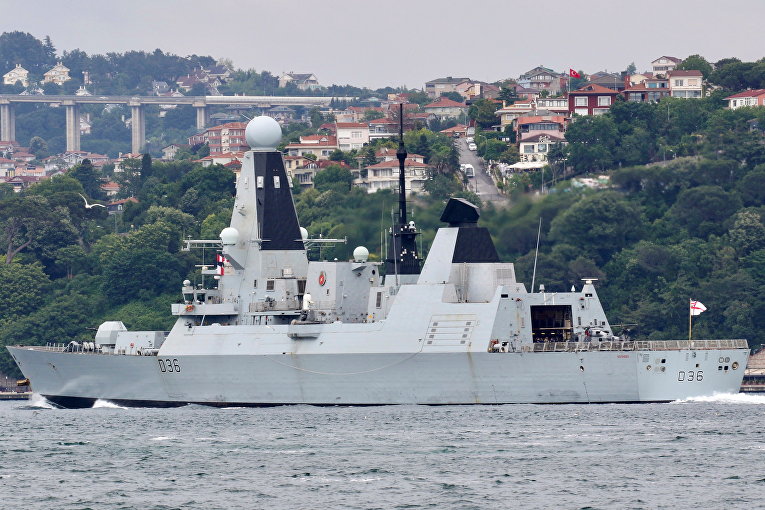Spectator UK
By Mark Galeotti
With Russian troops massing on Ukraine’s borders, the Black Sea is looking choppy. While that may seem to have little significance for us, in an age of globalised supply chains, international security commitments and Britain’s ‘tilt to the Indo-Pacific,’ that matters more than we might think. However, there is also an opportunity for the UK.
In a report for the Council on Geostrategy that was published this week, I, James Rogers and Alexander Lanoszka, suggest that the Black Sea region is at risk of becoming an anarchic environment where insecurity reigns amid Russian domination.
This matters. Rather than being seen as some distant periphery, at best a ‘flank’ of Europe, the Black Sea region ought to be recognised as a central ‘gateway’ between Europe and Eurasia and between the Euro-Atlantic and the Indo-Pacific regions.
This is where the UK and its interests come in. Whoever controls the Black Sea can project power that much more easily into the eastern Mediterranean, and 12 per cent of all maritime trade still comes through the Suez Canal. Likewise, to access the Indo-Pacific region — and our bases there — the Royal Navy still has to move along the so-called ‘royal route’ the other way. Ensuring free movement through the eastern Mediterranean is a clear necessity.
But there is also opportunity for the UK. Both Ukraine and Georgia continue to seek membership of Nato, but the reality is that if this is going to happen, it is not going to happen soon. In the meantime, they need to find other ways to shore up their positions. In part, this is through the obvious means, building up their defences against overt and covert threats.
Britain is already involved in a range of military assistance programmes, having already trained more than 21,000 Ukrainian personnel. Although the United States is inevitably Ukraine’s main supplier of military aid, Britain is also now selling it Brimstone missiles, minesweepers and other defensive systems.
Equally effective — and less open to being characterised as provocative by Moscow — is assistance to Ukraine’s (and Georgia’s) security agencies. After all, what Moscow cannot accomplish by overt force, it may seek to achieve through covert means.
Both MI5 and GCHQ have enviable reputations, and they could step up their support for Ukraine and Georgia to build their defensive capacities in both counter-intelligence and cybersecurity. Both, after all, regularly experience serious cyberattacks that are generally ascribed to the Russians. Strengthening their ability to resist should reduce not only their impact but their frequency, especially as many attacks are opportunistic. The idea is so-called ‘deterrence by denial’ — the less likely attacks are to succeed, the less likely they are to be launched.
Britain also has strengths in ‘discursive statecraft’, the art of shaping international perceptions and assumptions. It can help push back against Moscow’s attempts to frame the Black Sea region as part of its so-called ‘near abroad’ sphere of interest. Instead, it must consistently and coherently uphold the sovereignty of Black Sea nations, and accept that Russia is one, too, with its own legitimate interests.
However, that does not extend to the right arbitrarily and illegally to claim waters off Crimea and blocking transit to the Sea of Azov, on which lie the Ukrainian ports of Mariupol and Berdyansk. Operations such as the recent transit of HMS Defender — which challenged Moscow’s claims, without directly provoking — demonstrate that Britain is perfectly able to affirm that the Black Sea is not a Russian lake.
The point is not to pretend that ‘Global Britain’ is somehow back in the imperialism game, much less to do anything to destabilise the region further. Rather, it is to recognise that what happens in the Black Sea region matters to us, and that we have an incentive to do what we can to stabilise it.
By helping countries such as Ukraine and Georgia maintain their national sovereignty and defend themselves from any challenges, there is a chance to do this. At a time when there is serious concern in the international community about the risk of an open war between Moscow and Kiev — which would be terrible for Ukraine, terrible for regional stability and, in the long-term, terrible for Russia, too — then this is worth doing.
